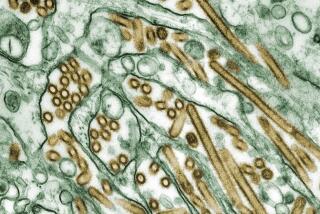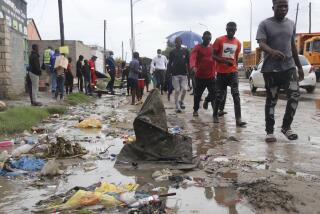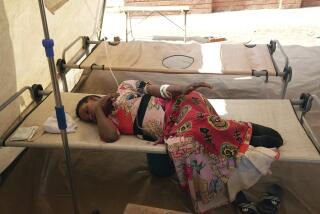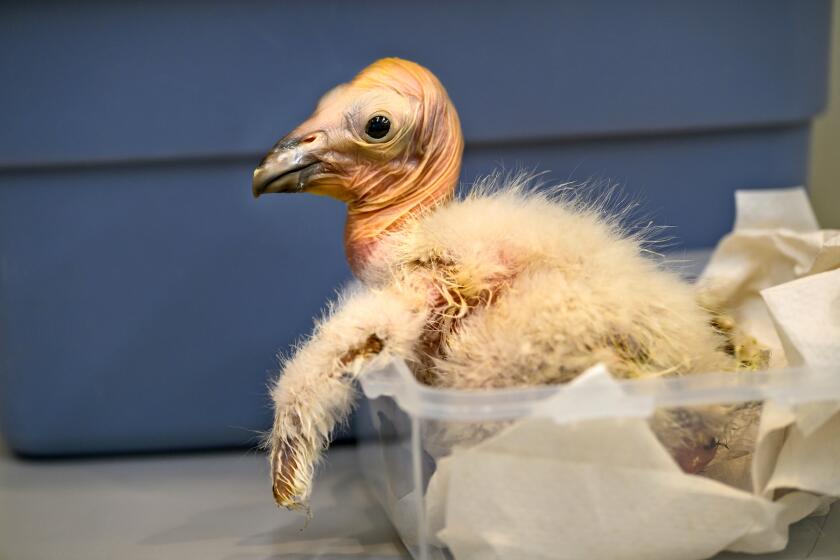Poliovirus discovered in Brazilian sewage, WHO reports
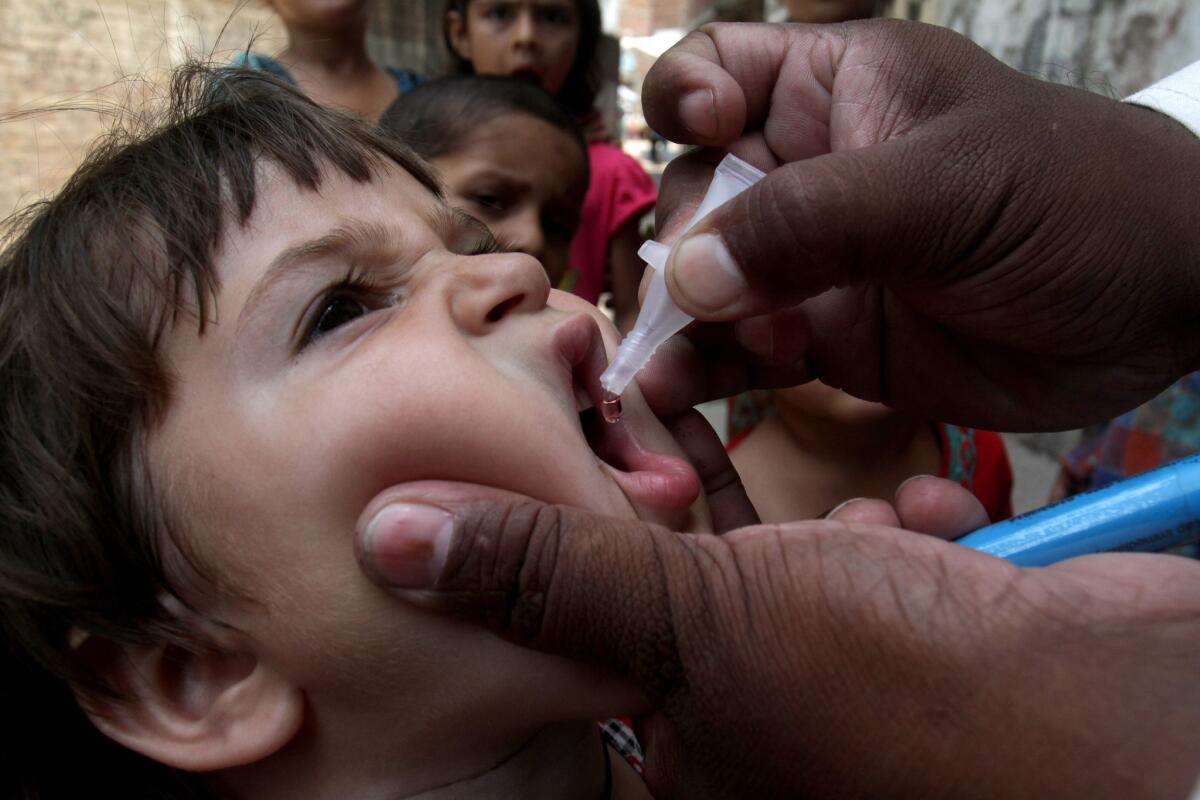
Brazilian health officers have discovered the polio virus in sewage in the World Cup host city of Campinas, the World Health Organization announced Monday.
Wild poliovirus type 1 (WPV1) was discovered during a routine health check at the city’s Viracopos International Airport and reported to the WHO on June 18, officials said.
To date there has been no evidence of transmission, nor has their been a case of paralytic polio reported.
“The World Health Organization asseses the risk of further international spread of this virus from Brazil is very low,” the announcement said.
Campinas has been serving as base camp for the Portuguese and Nigerian teams during the World Cup soccer tournament. It’s roughly 60 miles from Brazil’s most populous city, Sao Paulo.
WHO officials said the polio vaccination rate in the city and the state of Sao Paolo has been greater than 95%, and was one of the reasons they assessed that the health risk was low. The virus was found only in airport sewage.
Health officials are continuing to investigate the episode and are increasing surveillance activity. The case has been described as one of poliovirus importation. When the virus was genetically sequenced, it was found to closely match a strain recently detected in Equatorial Guinea, officials said.
Polio, or poliomyelitis, mainly affects children under age 5. It occurs when the virus enters the mouth or nose and reproduces in the gut. Eventually, the virus enters the blood stream and then attacks the nervous system.
One in 200 infections will lead to paralysis, according to the WHO.
Follow @montemorin for science news
